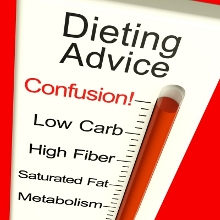 The more I read about adiponectin, one of the fat hormones in our body, the more impressed I am when I see and hear the solid research and science behind its benefits to our human body. Let’s see what these professionals, who are involved in the field of obesity and diabetes, are actually saying about this hormone called adiponectin.
The more I read about adiponectin, one of the fat hormones in our body, the more impressed I am when I see and hear the solid research and science behind its benefits to our human body. Let’s see what these professionals, who are involved in the field of obesity and diabetes, are actually saying about this hormone called adiponectin.
Dr. Sharma’s Take On Adiponectin
Dr. Arya M. Sharma is the founder and scientific director of a network of 6000+ obesity researchers and health professionals called the “Canadian Obesity Network”, and this is what he has to say about it. On his site, Dr. Sharma’s Obesity Notes, he writes …
“Back in 1996, a protein now widely referred to as adiponectin, was found to be secreted in large amounts by fat cells. Paradoxically, however, secretion of this protein, which has positive effects on glucose and lipid metabolism as well as  anti-inflammatory effects, was found to be suppressed in obese individuals.
anti-inflammatory effects, was found to be suppressed in obese individuals.
In 2003, we published a paper in DIABETES, in which we examined the relationship between adiponectin and mediators of inflammation in blood and subcutaneous adipose tissue samples from 65 postmenopausal healthy women.
As expected, adiponectin plasma levels and adipose-tissue gene expression were significantly lower in obese subjects.”
He went on to say that …
“While the exact mechanism by which adiponectin secretion is reduced in obesity remains only partially understood, at the time, this study certainly suggested that low levels of adiponectin may well play a role in the increased systemic inflammation often found in obese individuals.
In the meantime, there is data to suggest that in fact the opposite may be true – increased inflammation (particularly in adipose tissue) may well be the mechanism through with adiponectin secretion is suppressed in obesity.”
In a nutshell, healthy levels of adiponectin in your body not only helps burn fat (i.e., “lipid metabolism”), but also regulates your blood glucose levels. That also implies that it helps with insulin resistance. Dr. Sharma also touched upon the positive effect adiponectin has on systemic inflammation. Individuals that suffer from chronic systemic inflammation may experience “multiple chemical and food intolerances, autoimmune diseases and many other symptoms and diseases”, as indicated in Wikipedia, and so it appears that healthy levels of adiponectin can keep chronic systemic inflammation at bay.
You can read Dr. Sharma’s complete article over here at “Hindsight: Adiponectin and Inflammation“. Oh, and by the way, Dr. Sharma (MD/PhD, FRCPC) is the clinical co-chair at the Alberta Health Services Obesity Program, and also the Professor of Medicine and Chair at the Obesity Research and Management at the University of Alberta, Edmonton, Canada.

Novus Biologicals’ Take On Adiponectin
According to Wikipedia, Novus Biologicals is a “biotech company … which develops, licenses and markets research materials to scientists in academic, corporate and government laboratories.” This company is known to develop an extensive range of products, such as “antibodies, proteins, peptides, RNAi, cell lysates, isotype controls, slides, and kits.” So you could say that they are quite the authority when it comes human hormones.
At the Novus Biologicals site, the article titled “Get the skinny on Adiponectin & Leptin Antibodies” mentioned that “[i]n human studies, there is an inverse relationship between adiponectin levels, obesity, type 2 diabetes and metabolic syndrome.” They found that “[i]n both human and experimental animal studies, reduced adiponectin expression is linked to obesity, type 2 diabetes and IRS …”, where “IRS” refers to insulin resistance syndrome.
Current medical research has found that it is very, very difficult to lose body fat and weight when you have insulin resistance. The end result is that glucose is abundantly available in the bloodstream to burn as an immediate energy source, as fat takes a back seat while being stored and becomes harder to burn as energy.
Dr. Joe’s Take On Adiponectin
The following video is from a site called Dr. Joe’s E-News – A Diabetes Newsletter. J. Joseph Prendergast, M.D., is the founder of the Endocrine Metabolic Medical Center (EMMC) located in Palo Alto, California. This clinic provides patient care for individuals with “diabetes or diabetes complications”, as well as serving as a technical resource on the Internet.
<<<<<<<<<< <> >>>>>>>>>>
Though I am not affiliated with Swanson Vitamins, they offer an affordable supplement called ChalCurb Ashitaba Extract, which promotes production of leptin and adiponectin.
Images courtesy of FreeDigitalPhotos.net



